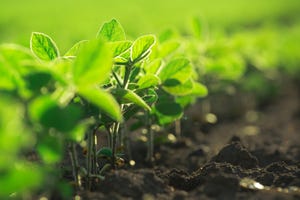Reports reveal concerns on Bayer-Monsanto merger
More than 1 million petition signatures sent to Justice Department calling for merger of Monsanto and Bayer to be blocked.

If Bayer and Monsanto are allowed to complete their proposed $66 billion merger, the economics of food, farming and the environment will be radically altered, according to a new analysis released Tuesday.
Friends of the Earth, SumOfUs and the Open Markets Institute released an analysis, "Bayer-Monsanto Merger: Big Data, Big Agriculture, Big Problems," which explores the implications of a combined big data, chemical and seed platform owned by Bayer and Monsanto and how it may affect competition and farmer choice.
If the Bayer-Monsanto merger is approved, the new company would be the world's largest vegetable seed company, world's largest cottonseed company, world's largest manufacturer and seller of herbicides and world's largest owner of intellectual property/patents for herbicide tolerant traits. Should the merger move forward, 77% of the corn seed in America would be controlled by two companies: Bayer-Monsanto and DowDuPont.
“While much of the focus on the proposed merger has rightly been on seeds, traits and chemicals, a little-noticed fourth component of the transaction is critical to understanding its impact on the future of food and farming in the United States: data,” the analysis noted.
The release of the analysis coincides with a hearing Tuesday on technology in agriculture and data-driven farming in the U.S. Senate Committee on Commerce, Science, & Transportation.
Today, tractors and other farming equipment are often equipped with sensors, mobile connectivity and global positioning systems (GPS). Drones equipped with infrared cameras and GPS patrol the air, reporting on field conditions. Satellites and phone apps allow farmers to monitor soil and climate conditions down to the square meter. Data can dictate the how many seeds farmers plant in each micro-area of their land.
The industry is growing quickly, and the market for digital-based agricultural services is expected to reach $4.55 billion by 2020, the analysis noted.
“This combined company vision for digital farming is so important to Bayer that the company simply rejected (European Union) regulators' concerns about the big data competition issues raised by the merger. Bayer said 'it was unable to propose the sale of any digital farming assets to allay EU concerns,’” the report noted.
Consumer Federation of America also released a report, "Mega-Mergers in the U.S. Seed & Agrochemical Sector the Political Economy of Tight Oligopolies on Steroids & the Squeeze on Farmers & Consumers." The report uses the concept of a "tight oligopoly on steroids" to examine how the unique characteristics of the Bayer-Monsanto merger magnify the companies' market power in the seed/agrochemical sector and squeeze farmers and consumers.
At the National Press Club on Tuesday, a panel of experts discussed the findings of the reports and explored the latest research indicating irreversible impacts from the merger on consumers, farmers and competition in the face of record-low commodity prices and struggles in rural America.
More than 1 million Americans have signed petitions calling on the U.S. Department of Justice to block the Bayer-Monsanto merger. Petitions were collected by Action Aid, Avaaz, Center for Food Safety, Clif Bar Family Foundation/Seed Matters, CREDO, Food & Water Watch, Friends of the Earth, Organic Consumers Assn., Organic Seed Alliance, Pesticide Action Network North America, Rural Advancement Foundation International, Sierra Club and SumOfUs.
About the Author(s)
You May Also Like





